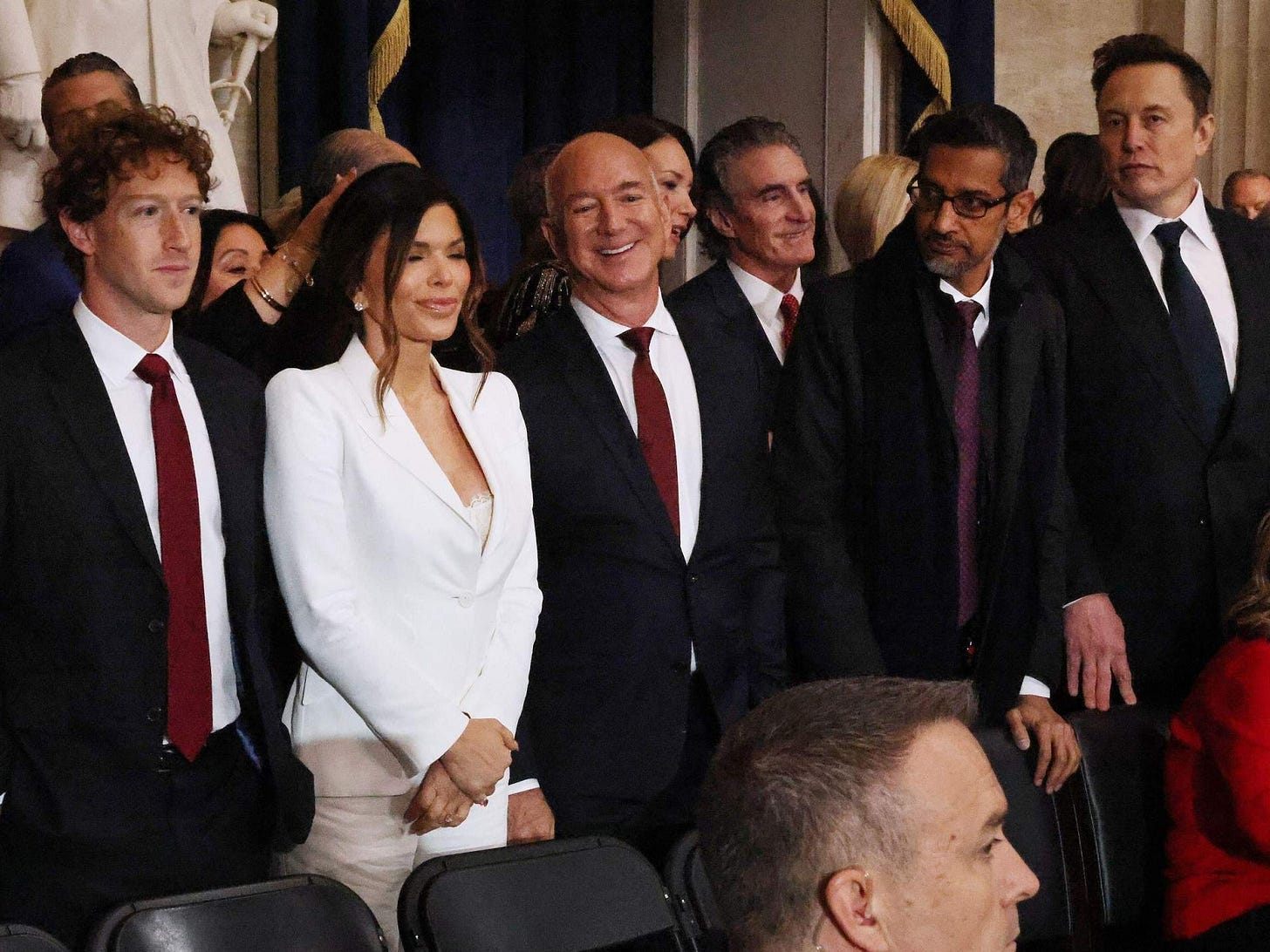The Rise of The New Digital Press Barons
The pernicious influence of billionaire media barons has survived the onset of the digital age, warns Kyle Taylor

The descriptor ‘press baron’ has a nostalgic ring, harking back to a ‘golden age’ of mass circulation print journalism. In the US, newspaper magnates were typified by the likes of Randolph Hearst – an inspiration for Orson Welles’ classic movie ‘Citizen Kane’ – and in the UK by Viscount Rothermere, owner of the Daily Mail, which in 1934 acted as a cheerleader for Oswald Mosley’s British Unions of Fascists, with its ‘Hurrah For The Blackshirts’ front page headline.
In more recent times, Rupert Murdoch has picked up the mantle of ‘press baron’ on both sides of the Atlantic - and in Australia, too - by promoting a distinctive form of prurient, invasive journalism, allied to aggressive, right wing politics across a range of outlets.
Murdoch’s influence in the UK was reflected in The Sun’s hubristic headline after the Conservative victory in the 1992 General Election – ‘It Was The Sun Wot Won it?’ - while in the States, his Fox News channel has done more than any other mainstream outlet to promote Trumpian narratives (notwithstanding the current legal spat between POTUS and the Murdoch-owned Wall Street Journal).
But now the media has splintered into so many online silos, the idea of a press baron is surely outmoded; irrelevant even?
Not a bit of it. As tech commentator Kyle Taylor explains in an interview with the Byline Podcast , the fragmentation of the news landscape has actually helped amplify the voice of traditional outlets, even as their print circulation has plummeted. This is especially the case in the UK, where the likes of The Sun and Daily Mail have disproportionate power to set the news agenda for politicians as well as colleagues on TV and radio.
Taylor, editor and co-author of the Little Black Book of Press Barons, said, “What we're seeing is that because of an extremely fragmented information environment online, people are actually turning to and validating sources from traditional press barons. That is giving them an outsized influence.”
He cites the Christchurch attacks in New Zealand in 2019, where white power terrorist Brenton Tarrant attacked a mosque and an Islamic centre, killing 51 people. Tarrant’s attempts to live stream the killings were blocked by social media companies, but his message was amplified by mainstream news sources.
“The tech companies, to their credit, tried as best they could to stop the spread of this,” Taylor said. “But at the same time, you had traditional news media outlets like the Daily Mail and The Sun posting clips of the video of the actual terrorist attack on their homepages - and the Daily Mail had a downloadable PDF of the manifesto of the terrorist.
“As a result, on Twitter [now X] nearly 80% of all consumption of information about that attack was through mainstream British print newspapers.”
Meanwhile in the United States, the rise of digital press barons has become all too evident since Donald Trump’s return to the White House in January. The likes of Elon Musk, Mark Zuckerberg and Jeff Bezos all made substantial donations to the Trump campaign and/or his inauguration committee - and have been well rewarded.
Taylor observed: “If you need anything more symbolic, we saw these digital tech barons sitting in the front row of the inauguration, in front of Cabinet secretaries. So, ‘oh, you're about to be the secretary of state, you're about to be the secretary of defence. Great. You'll be in row two, because Jeff Bezos, Mark Zuckerberg and Elon Musk are going to be sitting in row one.’ And that is intentional.”
This link between tech bros and presidential power has since looped back into the EU and the UK, where Vice President JD Vance recently declared that free speech is “in retreat.”
Vance warned Europe last September that US support for NATO was conditional upon on freedom of expression remaining unrestricted on X; while more recently pressure has been applied on the Westminster government to dilute aspects of the Online Safety Act, designed to protect children from being abused.
Taylor said: “We’re seeing a great tie up of tech and Trump in the US and that [is being] used as a foreign policy weapon to actually suppress any state level interventions that deal with harmful content, disinformation and societal breakdown.
“We saw that in the UK 2024 summer riots. The riots were sparked on social media by information that was factually inaccurate. There were people outside asylum seekers’ hotels trying to burn them alive.”
More recently, Olujuwon Ayeni a black musician from Redcar faced violent threats after far right agitator Tommy Robinson (real name Stephen Yaxley Lennon) shared a video of him playing the park with his white grand-daughters. Robinson asked ‘wtf is even going on here? Where are the parents?’, leading to Olujuwon being falsely accused of being a paedophile and being suspended at work. His family say they are living in fear and afraid to leave the house.
Despite his dangerous insinuations, Robinson has apparently committed no offence by posting the video to his 1.4 million followers; and although individual online agitators are sometimes jailed, the people profiting from the misinformation spread on these platforms - the likes of Musk and Zuckerberg - are not being held to account.
That, said Taylor, is “because these companies are so aligned with the US Government that other governments are fearful of holding them to account. We're living in a dystopian, techno-feudal hellscape, where we can't even control information flows to stop domestic riots because of the power of these tech billionaires.”
Order the Little Black Book Of Press Barons here.
Listen to the full interview on the Byline Podcast now.


